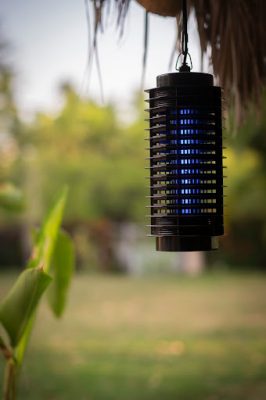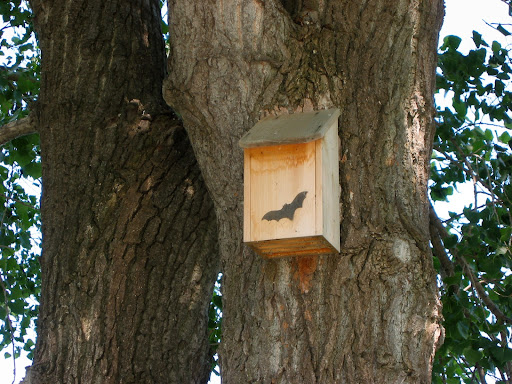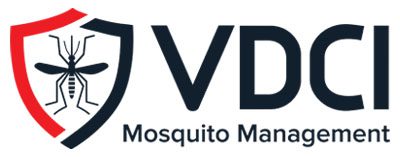We’ve all experienced aggravating mosquito bites when spending time outdoors, and for most people, they’re nothing more than a nuisance. And many of us have heard about outbreaks of West Nile Virus, Dengue, Eastern Equine Encephalitis, and other diseases, but may have dismissed the risk of contracting them as extremely rare. These are dangerous misunderstandings; mosquitoes kill more than one million people each year, making them the deadliest species in the world.
Protecting ourselves from mosquito bites is essential to the well-being of our communities, but unfortunately, there are many myths and misconceptions about popular mosquito deterrents. VDCI is committed to educating the public on the safety and efficacy of common mosquito prevention tools – and supporting communities, state agencies, and mosquito-abatement districts with science-backed solutions and management strategies.
Common mosquito prevention myths and misconceptions
Bug zappers – There’s a common belief that bug zappers attract and electrocute mosquitoes using ultraviolet lights or black lights. In fact, more than two million homeowners turn to bug zappers for mosquito management around their properties. In reality, research indicates that mosquitoes comprise only 6% of the bugs killed and these devices are actually detrimental to beneficial insects including moths and beetles. These devices do not work to reduce host-seeking mosquitoes, because females in search of a bloodmeal are most attracted to carbon dioxide expelled by humans and animals when they breathe.

Misting sprays – Private misting systems have become a popular solution marketed by companies that are not licensed in public health. This means that the spray products they use do not have to be registered with the Environmental Protection Agency (EPA). While the products are capable of killing mosquitoes, this approach can be harmful to the environment and may result in unnecessary exposure to people. When insecticides are sprayed in unnecessary amounts or intervals, mosquitoes can become resilient to them over time. Improperly applied insecticides can also harm non-target insects that are beneficial to the environment. The American Mosquito Control Association (AMCA) has taken a stance against these misting systems until there has been more research and efficacy testing done.
Bats – While they do feed on insects, fecal studies suggest that mosquitoes make up less than 1% of a typical bat’s diet. Attracting them with bat houses can certainly help reduce moths, beetles, and leafhoppers, which are favored food sources, but will have no significant impact on mosquito populations. Furthermore, some bat species may actually pose risks to humans, particularly when they’re able to roost near attics and other living areas. Bat droppings (guano) are capable of producing spores that cause a harmful respiratory disease when inhaled. They can also carry parasites and viruses like rabies. According to the Centers for Disease Control and Prevention (CDC), bats are the leading cause of rabies deaths in the United States.

Integrated Mosquito Management
The safest and most effective mosquito management solutions are backed by science and executed as part of an Integrated Mosquito Management (IMM) program. IMM programs provide solutions that target mosquitoes at every stage of their lifecycle. And diligent monitoring and surveillance efforts ensure diseases, population changes, and signs of insecticide resistance are identified as soon as possible. When adult populations reach unacceptable or dangerous levels, then insecticides that are registered with the EPA should only be applied by licensed professionals in appropriate amounts, in the right places, and at the right times.

Proactive science-backed solutions are most effective when supported by knowledgeable citizens. VDCI partners with municipalities, mosquito abatement districts, and public health organizations to disseminate educational resources that bust myths and misconceptions about mosquito management and arm people with essential mosquito prevention tips to help them limit breeding habitats on their property and protect themselves from bites – because everyone deserves peace of mind while enjoying the outdoors.
Contact Us to Learn More About Effective Mosquito Prevention Strategies
 Since 1992, Vector Disease Control International (VDCI) has taken pride in providing municipalities, mosquito abatement districts, industrial sites, planned communities, homeowners associations, and golf courses with the tools they need to run effective mosquito control programs. We are determined to protect the public health of the communities in which we operate. Our mosquito control professionals have over 100 years of combined experience in the field of public health, specifically vector disease control. We strive to provide the most effective and scientifically sound mosquito surveillance and control programs possible based on an Integrated Mosquito Management approach recommended by the American Mosquito Control Association (AMCA) and Centers for Disease Control and Prevention (CDC). VDCI is the only company in the country that can manage all aspects of an integrated mosquito management program, from surveillance to disease testing to aerial application in emergency situations.
Since 1992, Vector Disease Control International (VDCI) has taken pride in providing municipalities, mosquito abatement districts, industrial sites, planned communities, homeowners associations, and golf courses with the tools they need to run effective mosquito control programs. We are determined to protect the public health of the communities in which we operate. Our mosquito control professionals have over 100 years of combined experience in the field of public health, specifically vector disease control. We strive to provide the most effective and scientifically sound mosquito surveillance and control programs possible based on an Integrated Mosquito Management approach recommended by the American Mosquito Control Association (AMCA) and Centers for Disease Control and Prevention (CDC). VDCI is the only company in the country that can manage all aspects of an integrated mosquito management program, from surveillance to disease testing to aerial application in emergency situations.

